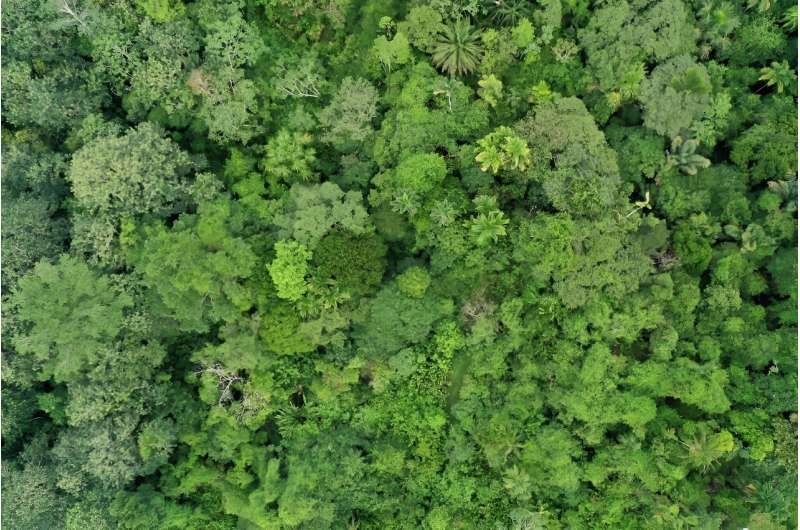
Global warming is driving leafy tropical canopies close to temperatures where they can no longer transform sunlight and CO2 into energy, threatening total collapse.
A tiny percentage of upper canopy leaves have already crossed that threshold, reaching temperatures so high—above 47 degrees Celsius—as to prevent photosynthesis, the study published in Nature reported.
Currently, some leaves exceed such critical temperatures only 0.01 percent of the time, but impacts could quickly scale up because leaves warm faster than air, the researchers said.
“You heat the air by two to three degrees and the actual upper temperature of these leaves goes up by eight degrees,” lead author Christopher Doughty of Northern Arizona University told journalists.
If tropical forest’s average surface temperature warms 4˚C above current levels “we’re predicting possible total leaf death,” he said.
The new research suggests that leaf death could become a new factor in the predicted “tipping point” whereby tropical forests transition due to climate change and deforestation into savannah-like landscapes.
The critical temperature at which leaves turn brown and die might also differ by species, depending on the size and thickness of their leaves and the breadth of their canopy.
But there are already concerning signs. In the Amazon, where temperatures are higher than in other tropical forests, the rate at which trees are dying has increased in recent decades.
“The Amazon is currently experiencing higher levels of mortality than Central Africa and that could possibly be due to the high temperatures we’ve seen there,” said Doughty.
Increased fragmentation of the forests from deforestation has also been shown to make the remaining forest areas warmer.
Tropical biomes contain 45 percent of the Earth’s forests, and play an outsized role in absorbing human-caused carbon pollution.
They also harbor half or more of the world’s plant biodiversity, with at least 40,000 different tree species, according to the Intergovernmental Panel on Climate Change (IPCC).